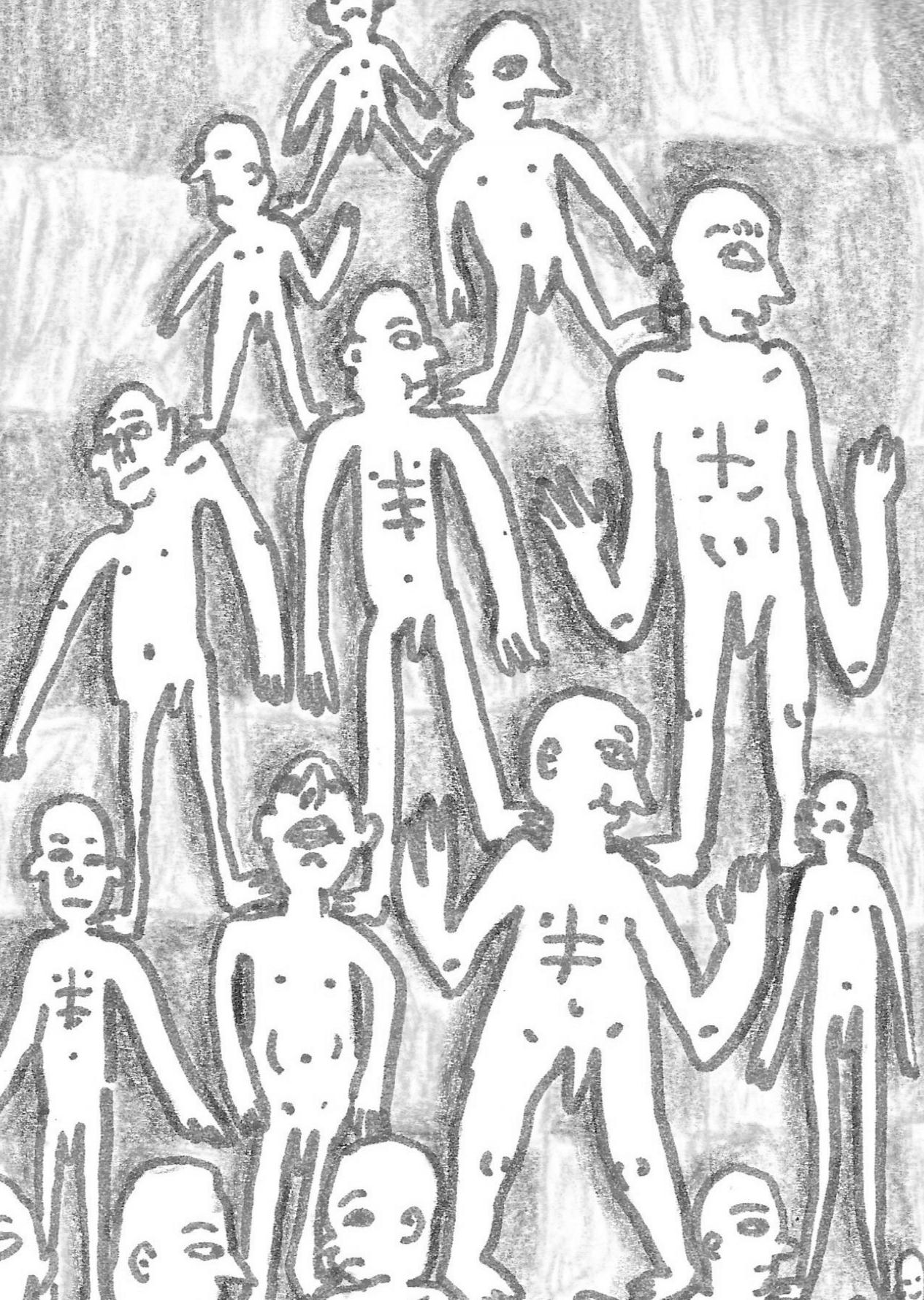
4 minute read
Barefoot Silvina Ocampo
Barefoot
by Silvina Ocampo
Advertisement
translated by Matty Matsagoura
Those fights dished out like a cut of yesterday’s cold meat are the worst. They tie you to a double-knotted uneasiness, impossible to untangle and sticky to the touch, like chest rub— thought Cristián Navedo, as he aggravated the situation on his desk, deepening the disorder by piling up new books and documents, whose presence contributed to the ever-growing range of paper mountains that loomed over the table. He lived in constant fear of suffocating to death beneath those papers lost forever in clutter, the kind of bits of paper that you search for and never find, for they float about in undefined space, somewhere in a pool of even more papers, behind bookshelves, trapped in dark corners sprinkled with dashes of earth. And yet, as a child, he was taught to be orderly, to leave his clothes folded over the chair before bed, to put his workbooks and pencils away neatly in his desk drawer, and, not infrequently, he went without dessert. But all this achieved nothing except aggravate his inclination for disorder. It only really showed him how better to organise his disorder—manically.
Cristián kept everything, even his childhood notebooks, and despite this he lived in perpetual worry of having lost everything. Behind the scenes of this regimented object-chaos lurked an obsessional inner life that seeped right through him, reaching unimaginable depths; he kept everything, even fights aborted the day before.
But he could always find those again; arguments never got lost. Arguments... He logged every single one he had with Alcira, as one would in an accounts book.
They hadn’t known one another for very long, but they felt so in tune with 32
one another that it seemed as though time itself only began when they met. And out of nowhere, like slow assassins creeping into a house at nighttime, arguments began seeping into their days, like a betrayal. Slowly, as their love grew, so did the distrust and that tedious thoughtlessness that love drags along with it, like the creases one finds in a poorly-ironed suit that are impossible to smooth out, no matter how hard one tries. Such creases were unfortunately interspersed with episodes of shouting and of silence— it was disgraceful, all of it. That’s how mutual disagreement settled between them, which would gradually simmer down to a form of hushed resentment, with the next shouting match always lying in wait.
Cristián secretly missed his more naïve, detached and exotic lovers. It was just so easy to trust someone who didn’t matter to him too much. Those sweet-shop crushes, crushes on the corner of greengrocers, or found along beaches, crushes that cost him nothing. His morning walks in the sunshine, his empty hours, his solitude, his visits to his cousins’, the divine generosity of time, and the disgrace of being permanently alone; everything was preserved.
He remembered Ethel Buyington and the on-and-off relationship that kept them talking for a month. She gave him such an ethereal feeling, that transparent English girl who entrusted him with her life, that very first afternoon, sitting on a bench in a square. She told him the story of her childhood, set at a school in London. She only stayed at her parents’ in the holidays, and never for more than four or five months. She had written a novel by the age of fourteen and under her bed she kept a box containing all of her treasures. A doll, a museum comprised of a little box with lots of compartments, where she collected all types of curiosities: a butterfly, stitches from an appendicitis operation, a sunset stone, a snail, a milk tooth, doll’s eyes, and then the novel, and then eighteen poems dedicated to her doll.
Ethel finished her studies more ignorant than when she began them, and then went off to travel along the coasts of Africa with a French family. In her absence, her mother died; her sisters sold the furniture and the house they’d lived in. She received the news a month later; her treasures were lost somewhere along the way. When she returned to England her small room, once covered in birds’ wings and flowers, was erased beyond recognition; they had even sold the cretonne plants.
She couldn’t find the museum of boxes from under her bed anywhere. She was no longer fourteen, not even in her old portraits; she could no longer write or feel the way she once did. So, she became a ballerina and danced barefoot to avoid any dependence whatsoever on dance shoes, which get lost on trips under hotel beds. Ethel was right to do as much.
But Cristián – he needed all his stuff so desperately! He needed his armoury of books, diaries and papers to do anything, needed his regiment of shoes, only to end up wearing the same ones over and over and never doing any dancing in them!
Oh! To be as happy as trapeze artists and contortionist ballerinas, who never need any baggage save that of their own bodies! But Alcira, thought Cristián...





